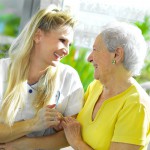A stroke is a life-altering event that can affect not only the individual who experiences it but also their loved ones. The journey to recovery is filled with challenges, but with the right approach and support, it's possible to regain independence and quality of life. Here's a guide on how to deal with a stroke and navigate the path to recovery:
 1. Seek immediate medical attention:
1. Seek immediate medical attention:Recognizing the signs of a stroke and seeking prompt medical attention is crucial. Time is of the essence, as certain treatments are most effective when administered early.
Strokes are generally classified into two types: ischemic (caused by a blood clot blocking a blood vessel in the brain) and hemorrhagic (caused by a blood vessel rupture). Understanding the type of stroke can guide treatment and recovery plans.
Medical treatment may include medications, surgery, or other interventions, depending on the type and severity of the stroke. Following the acute phase, rehabilitation becomes a critical component of recovery. Rehabilitation programs may encompass physical therapy, speech therapy, and occupational therapy.
Ask questions regarding retirement homes to our experts
A stroke can be emotionally challenging for both the survivor and their family. Seek support from mental health professionals, support groups, and loved ones to address the emotional impact and develop coping strategies.
After a stroke, lifestyle adjustments may be necessary to manage risk factors and aid recovery. These adjustments may include dietary changes, physical activity, and adherence to medications.
If the stroke has affected speech and language abilities, speech therapy can be instrumental in regaining communication skills. Speech therapists work with individuals to improve speech, language, and cognitive-communication abilities.
Physical therapy is essential for regaining strength, balance, and mobility. Rehabilitation exercises can help survivors regain independence and reduce the risk of future strokes.
Occupational therapy focuses on improving daily living skills. Therapists work with stroke survivors to adapt to challenges and regain the ability to perform essential tasks.
Depending on the severity of the stroke, assistive devices such as wheelchairs, walking aids, or communication devices may be needed to enhance mobility and daily life.
Stroke survivors are at a higher risk of experiencing another stroke. Working closely with healthcare providers to manage risk factors, taking medications as prescribed, and making necessary lifestyle changes are essential for prevention.
Family and friends play a significant role in the recovery process. A strong support system can provide emotional support, help with daily tasks, and motivate the survivor.
Set realistic and achievable goals for recovery. Celebrate small victories along the way, as they can be motivating and build confidence.
Dealing with a stroke is a challenging journey, but with determination, medical support, and a strong support system, individuals can regain their independence and improve their quality of life. Recovery may take time, but the resilience of the human spirit can lead to remarkable progress and a fulfilling life after a stroke.
Don't hesitate to contact us at 343 309 5289. We can help you choose the right establishment for you and assist you in your search.

Find a suitable senior residence